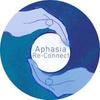You’ll be helping to reduce loneliness and social isolation through friendly conversations. Calls can cover a variety of topics from experiences with epilepsy to your latest TV obsessions! As a befriender you can pick the day and time you want to volunteer so it fits well around other commitments.
We are looking for volunteers who have a couple of hours a week to give on a regular basis to make friendly calls to people living with epilepsy who are feeling lonely or isolated.
What you will be doing
- Having weekly half hour chats with two or three people a week (depending on how much time you have to give)
- Having conversations around shared interests or experiences
- Helping people to recognise their own self-worth and build confidence
- Signposting to our website, helpline or other services
- Gently encouraging them to make connections in their community so they continue to be supported when the befriending sessions end
- You'll receive training on how to be a befriender volunteer as well as epilepsy awareness, mental health and communication skills training
- You'll join our network of volunteers through meet-ups, social events and networking
- You'll be kept up to date with all the latest news about our work on our volunteer portal
- You'll receive full support when you need it with a dedicated volunteer supervisor
- You'll feel pride in knowing you are helping others to be more confident and less isolated
By checking in with a friendly phone call you can brighten someone’s day. You may even be able to give them the confidence to make more connections in their community so they have support to get out and about a bit more. Either way, through your calls you’ll be making a difference, making them feel like someone cares.
You'll learn how to be an effective befriending volunteer as well as more about epilepsy, mental health and communication.
- Someone who is able to start and keep friendly conversations going over the phone or video call
- Someone who has a caring, compassionate nature with sensitivity to deal with emotional situations
- Someone with excellent listening and communication skills
- Someone who has respect of different values and beliefs and understanding of different personal situations
- Someone who has access to the internet to use our online volunteer portal
Similar Opportunities

The aim of this communication support role is to have better conversations, and to support people with a communication disability, aphasia, to live life well. Aphasia is secondary to a stroke or brain injury or illness.

Work alongside us to bring in funds for Aphasia Re-Connect. Work with our advisory group to contribute your ideas and support. Be prepared to roll up your sleeves and join us for events and initiatives. Be happy to take and share photos.

Visit a person at home and befriend them, offering communication support, and a fresh perspective from their daily routine. The person you visit will have aphasia, a communication disability, often stuck at home without support.


